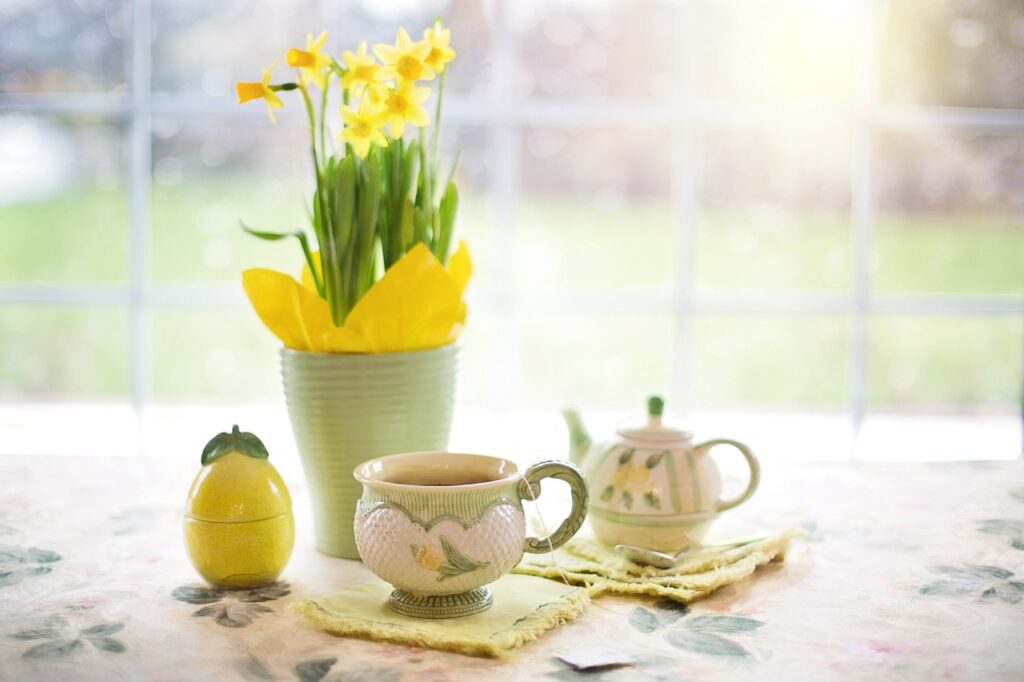
About two years ago, a realization struck me as I wandered among Hobby Lobby’s wall décor: I don’t have to be married and have children to make a home—to be a homemaker.
As I roamed the aisles, I had been considering the many styles displayed throughout the store. Farmhouse. Rustic. Coastal. Traditional. Bohemian. Modern. Such differences in artwork and tones. I thought of the popularity of this home decor store and the thrill I saw on women’s faces as they found pieces to add to their homes.
There was something in these women I saw—and in me—that wanted to create beautiful and welcoming spaces. Until this point, I felt cut off from the opportunity to create my own home. At thirty-one, I was still single and living with my parents. Yet I was on the verge of moving to Cleveland, Ohio, to teach in a Christian school. For the first time, I would have my own apartment. And even though I did not have a husband or children, I was going to create a home.
What Is a Home?
In the following weeks, I began pondering, What is a home? To find the answers, I studied Scripture. What I learned freed me to joyfully embrace the title homemaker and make a home in a variety of circumstances.
The basic definition of a home might be “the place we live.” We eat, sleep, and hang out there. We have walls and a roof that shelter us from outside elements. Yet a home is more than a building.
The First Home
God describes how He created the world in Genesis 1. He spoke an entire world into existence, and He wanted people to fill it. He commands Adam and Eve to “be fruitful, and multiply, and replenish the earth” (Genesis 1:28).
Replenish means to fill up. Thus, God desired that the entire earth would be a home, or a dwelling place, for mankind. He then placed the first two people in a “home base,” if you will, to operate from.
The Lord took great care in creating and establishing this home. Genesis 2 tells us,
And the LORD God planted a garden eastward in Eden; and there he put the man whom he had formed. And out of the ground made the LORD God to grow every tree that is pleasant to the sight, and good for food. . . . And a river went out of Eden to water the garden. –Genesis 2:8–10

Notice that God took the time and effort to plant a garden with access to food, water, and beauty. He did not intend for Adam and Eve to simply wander aimlessly around the world. They needed a home, so the Lord thoughtfully and intentionally created one just for them.
What God created is not what we would construct today as our “dream home.” Today, we need a building to shelter us from the elements. Yet Adam and Eve did not need sheltered from anything. There was no rain, for a mist rose out of the ground to water the earth. The sun would not scorch them. Ice and snow would not freeze them. No animals would harm them. Insects would not pester them. Adam and Eve lived with complete comfort and freedom in nature. They lived, worked, and slept with the vast sky above them and the cool grass beneath them—with no walls to box them in.
So the Lord thoughtfully planted a gorgeous garden. What care God showed for Adam and Eve! God Himself stooped down to be the first landscaper, arranging the bushes and flowers and trees to make a beautiful natural home for His special creation.
“God thoughtfully and intentionally created a home.”
After Adam and Eve’s fall into sin, the type of homes people lived in changed. Adam and Eve had to leave the Garden of Eden. Although the Bible does not tell us where or how they lived after the Fall, we know their son Cain eventually built a city. Thus, it seems that the change sin brought to the world necessitated homes to provide protection and shelter. Yet regardless of the type or style of home, God established a place for people to dwell in—a home—in the very beginning.
Why did God create this home? What was its purpose?
A Place of Refuge
First, a home is a place of physical, emotional, and spiritual refuge. It is a place of “protection or shelter, as from danger or hardship.”[1]
How many times do we sigh in relief when we enter the front door of our home? As we swing open the door, breath, stress, and worry whoosh out in a huff that ends in a sigh. We drop our bags and keys, kick off our shoes, and cast a longing look at the couch. We have entered a place of refuge from the pressures of the outside world. Here, pretense falls. Here, we can be our true selves. Here, we can rest.
A Command Center
Our homes are not only places of refuge but also command centers from which our ministries operate. When we serve the Lord, He dispatches us to various places throughout the week: to our work, our church, our school, Bible studies, gatherings with family and friends, stores, and restaurants. In every place we go, we are ambassadors for the Lord.
We give out. We take in. We need a place to process, strategize, and regroup so we can continue to carry out our orders. Home is the place we do that.
A Place of Ministry
Although home is a refuge for ourselves and a command center for planning, it is also a place of ministry. People who walk through your door may need encouragement and refreshment. It may be other single girlfriends, siblings, parents, children, or a mixed group for an activity such as a Bible study.
The world would say we are talking about entertaining. There is nothing inherently wrong with that description. Yet as someone who wants to use her home to serve an eternal purpose, I prefer to call hosting people in our homes ministering. When we invite people into our homes, our purpose is to serve them.
The Universality of Homemaking
A home is to be a place of refuge, a command center, and a place of ministry. Whether we live in a house, an apartment, or one room in our parents’ homes, we can create these beautiful and welcoming spaces. In future posts, we will explore some practical ways for ensuring our homes fulfill these purposes.
But for now, realize that regardless of your stage of life or relationship status, God does not exclude you from the responsibilities and joys of homemaking. God, the great homemaker, has entrusted you with some space, whether big or small, to make into a home.
What a joy to know!
For more biblical insights and practical tips about homemaking, check out my book Opening the Hope Chest: A Single Girl’s Guide to Homemaking.
[1]. The American Heritage Dictionary of the English Language, 5th ed. (2020), s.v. “Refuge,” https://ahdictionary.com/word/search.html?q=refuge.


Great post! It’s a joy to know that the beauty I create in my home is similar to the beauty God created in the garden. Thanks for the reminder that a home doesn’t need to have a certain number of people in it.